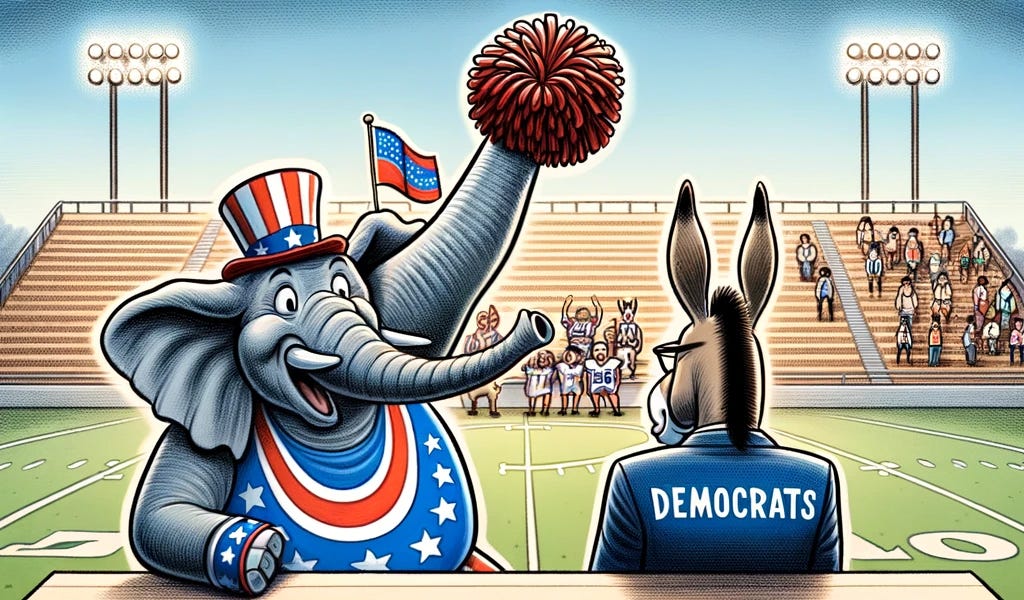It's long been known in economic research that people's perceptions of the economy are dependent upon their political affiliation. When a Republican is President, the Democrats are far more negative about the economy than the should be. And when a Democrat is President, Republicans are far more negative about the economy than they should.
However, Republicans under Trump have become even more partisan about the economy.

 www.briefingbook.info
www.briefingbook.info
However, Republicans under Trump have become even more partisan about the economy.
A puzzling feature of the current economy is the mismatch between strong economic fundamentals – low unemployment, easing inflation, and strong GDP growth – and gloomy consumer sentiment. In this post, we provide one contributing factor, which we refer to as asymmetric amplification: While both Republicans and Democrats view the economy more favorably when their party controls the White House, the magnitude of this partisan bias is roughly two and a half times larger for Republicans than for Democrats.

Asymmetric amplification and the consumer sentiment gap
How excess Republican partisanship contributes to the gap between economic fundamentals and consumer views on the economy




